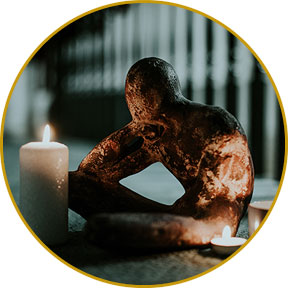What Happens When We Die Alone Without Family to Take Good Care?
That’s a darn good question!
I was working away at the midtown offices of the Memorial Society of BC when this lovely elderly woman arrived for a chat about her end of life preparations. She lives all alone, quite happily she said, and has been since her husband passed away many years ago. She has some friends she volunteers with but no family to speak of.
She dropped by to begin the planning of her death and was wondering about such things as what funeral home to choose, whether to prepay or not and what sort of arrangements she should make; all very important questions to ask, questions that form a great foundation for an excellent end of life plan.
She took one of our membership application forms and headed out to investigate several funeral homes in our area. She likes to do her research before making any decisions, she said and headed on her way. I encouraged her to return once she had decided to join as a member of the Memorial Society of BC.
It struck me a little later that a large percentage of elderly women live alone, in fact 63% of seniors over the age of seventy-five live alone and 69% of them are women. So what happens when they die at home, alone? A breath-taking question indeed. It brought up a lot of questions for me; who would know? How would the person who discovered them know what to do or who to call? If there were funeral arrangements where would they be? If there were no arrangements made who would make them?
The questions kept pouring through my mind.
It seems we could have a problem on our hands given the expected increase in the number of deaths, the wait lists for long term care, the overcrowded and over worked medical system, and a limited number of hospice beds available. Though local health authorities are exploring this issue and plans are in place for more hospice beds, the plans include funding for only 47 more hospice beds province-wide.
To ensure that our elders living alone are well taken care of at end of life we need to support them in making their funeral service arrangements well in advance and to have them on file with the Memorial Society for example in order that their wishes can be acted upon. Membership will ensure that plans are made and that a Memorial Society membership card is in their wallet and a fridge magnet with our contact number is clearly visible. This is one possible solution to what I see as a potential social and community challenge.

